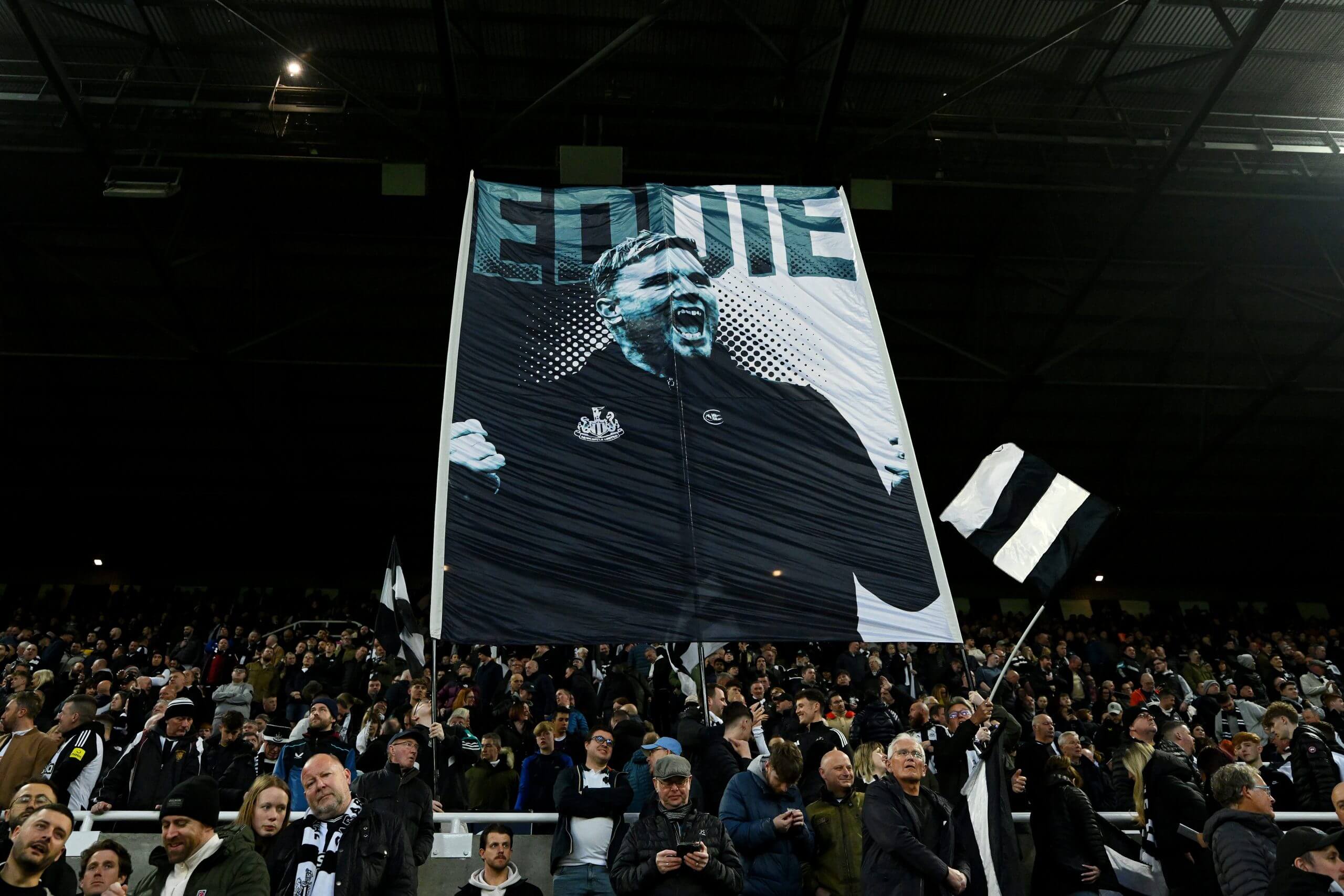
No cup will be lifted for this. No parade will snake through adoring crowds in the centre of the city. No joyous tears will be shed or speeches delivered. But in a season when Newcastle United have finally ended their long wait for a trophy, they are forging history of another sort. The possibility represents a half-achievement for Eddie Howe and his team, which is all the more impressive given the headwinds they have faced.
Advertisement
Might the Premier League title be the next bit of silverware in Newcastle’s sights? It has been on the bigger-picture agenda at St James’ Park since the club’s Saudi-led takeover in October 2021, when Amanda Staveley, then a part-owner, stated that the plan was to be competing for all the big prizes within five to 10 years. But, in more immediate terms, it is not an unrealistic question to ponder now.
Consider this: in all competitions, Newcastle have won 20 of their past 26 matches, an unparalleled run of form (contained within a single season) in their existence as a Premier League club. Over the same number of games, Liverpool, newly crowned as league champions, have won 16 and Arsenal, who are second in the table, have won 13. In other words, over an extended period of time, they are better than they have ever been and better than their rivals.
There are some important caveats, of course. First, and unlike Liverpool and Arsenal, Newcastle have not been playing in the Champions League, which features elite opposition and, at this point in the season, games which are extremely difficult to win. With a less hectic schedule, Howe has had more time to work with a tight squad that has not been stretched, unlike a year ago when their return to Europe coincided with a dreadful list of injuries.
And victory is not the only metric that matters. Newcastle have not drawn a game since sharing six goals with Liverpool on December 4, an anomalous statistic that skews the overall landscape. When Howe’s team do not win, they lose – and often lose badly – either in the sense of who they’re playing or the circumstances: 4-1 at home to Bournemouth, 2-1 to Fulham at home, 4-0 at Manchester City, 4-1 away to Aston Villa.
By contrast, Liverpool have lost twice in the Premier League this season and only once since mid-September, a level of consistency that lifts them above the rest of the division and 15 points clear of Arsenal, their closest challengers. Draws are important because they keep your points tally ticking over. And, as alluded to at the start, mid-season numbers are ultimately meaningless, except that, in this instance, they are both entrenched and intriguing.
Advertisement
Here is another: in the Premier League, Newcastle have won 14 of their past 19 fixtures, which equates to precisely half a season. It gives them a win percentage of 73.7. Over the entire campaign, Liverpool’s win percentage is 73.5, but over this spell it is 70. Since December 9, both Newcastle and Liverpool (who have played a game more), have claimed 16 victories, with no other team winning more than 11 times.
Most league wins since December 9
| Team | Games Played | Won | Drawn | Lost | Win % | Points |
|---|---|---|---|---|---|---|
|
Newcastle United |
19 |
14 |
0 |
5 |
73.6% |
42 |
|
Liverpool |
20 |
14 |
5 |
1 |
70.0% |
47 |
|
Nottingham Forest |
18 |
11 |
2 |
5 |
61.1% |
35 |
|
Wolverhampton Wanderers |
20 |
10 |
2 |
8 |
50.0% |
32 |
|
Manchester City |
19 |
10 |
4 |
5 |
52.6% |
34 |
|
Arsenal |
19 |
10 |
8 |
1 |
52.6% |
38 |
Again, the caveat is defeats vs draws. Liverpool have picked up 47 points compared to Newcastle’s 42 in this segment of the season, but that is still more than any other club, which means it is more than fair to describe this as title-challenging form. Purely on wins, it is title-winning form. And in this regard, Newcastle’s consistency stretches further back given that only Arne Slot’s side have won more league matches overall.
In the landscape of the club’s modern existence, Howe has led his team to desperately unfamiliar territory. Under Kevin Keegan, Newcastle also won 14 of their opening 19 matches in 1995-96, a run that left them 10 points clear at the top of the Premier League. That, famously, was the season they finished second after being overhauled by a metronomic Manchester United (or letting it slip, depending on your viewpoint), but for months the title was their target.
In 2001-02, under the charismatic management of Sir Bobby Robson, Newcastle won 14 of 20 league fixtures, and they repeated it in 2002-03, a season in which they were in a three-way title race with Manchester United and Arsenal. In both of their most recent single-season stints in the Championship, they had comparable runs and although the qualification here is considerable and necessary — it was a division below — Newcastle twice won the league.
Newcastle’s best Premier League seasons
| Played | Wins | Win % | Position | |
|---|---|---|---|---|
|
1995-96 |
38 |
24 |
63.2% |
2nd |
|
1993-94 |
42 |
23 |
54.8% |
6th |
|
2001-02 |
38 |
21 |
55.3% |
4th |
|
2002-03 |
38 |
21 |
55.3% |
3rd |
|
1994-95 |
42 |
20 |
47.6% |
6th |
|
2024-25 |
34 |
19 |
55.9% |
3rd* |
|
2022-23 |
38 |
19 |
50.0% |
4th |
|
1996-97 |
38 |
19 |
50.0% |
2nd |
|
2011-12 |
38 |
19 |
50.0% |
5th |
|
2023-24 |
38 |
18 |
47.4% |
7th |
Is this really the level Newcastle are at? Right now, yes, and with four games to play, it has left them third in the table and pushing for the Champions League again. If they end the season still winning matches, it would only be natural for them to be in the conversation about the title next time around, even if others will feature, too. It is difficult to imagine Manchester City struggling so badly again. What about Arsenal and Chelsea? Do they spend again and go again?
Advertisement
For Newcastle to trade blows — or to continue to trade blows — with those clubs, there are some fairly big hurdles to overcome, with Europe a notable one. Howe repeatedly refers to the “small” size of his squad, which is less a reference to numbers than its shallow quality. And perhaps the life-cycle of this particular brilliant team, whose triumph in the Carabao Cup final earned a first domestic trophy for 70 years, is also drawing to a close.
Connected to both of those things: Newcastle have not signed a first-team-ready player for three consecutive transfer windows. As a counter-balance, Liverpool have not added to the squad Slot inherited from Jurgen Klopp last summer, but that comparison is not equal given their higher base and greater depth. Newcastle have had much-publicised issues with the Premier League’s profit and sustainability rules (PSR), but treading water is not an option.
An unknown quantity is what might happen if other clubs attempt to poach Newcastle’s truly game-changing players, such as Alexander Isak.
It was only in February that Howe spoke in stark terms about the challenge in front of Newcastle following a rare visit to Tyneside by Yasir Al-Rumayyan, the club’s chairman and governor of Saudi Arabia’s Public Investment Fund (PIF), Newcastle’s majority owners. “If we’re going to catch the teams above us, we’re going to need to drastically improve everything that we’re delivering,” Howe told reporters. “And that goes right across the board in every department of the football club, because we have so much to do to get to the top.
“It’s not going to happen just by thinking it. It’s not going to happen by willing it. We have to actually deliver it. And that takes money, that takes investment, that takes smart thinking, strategic thinking, which I know is going on at the club, but then we need to implement it all.
“I think just purely in terms of investment and taking the team forward, we’ve taken a bit of a hit. We understand that and I acknowledge that, but it’s through no one’s fault and we have to live in the world of reality. We know that we want to take the team forward again, we’re desperate to do that, we have ideas to do it and hopefully we can make that happen in the future. It may take a bit of time because these clubs we’re talking about are way ahead of us.”

Newcastle are united behind Eddie Howe, so how far could that take them? (Stu Forster/Getty Images)
Whether that timeline can change or has changed is uncertain and, in any case, the point of this article is actually not to exert pressure or to acclaim Newcastle as future champions, but rather to recognise and celebrate an extraordinary moment in their history. It also feels slightly strange; in some ways, this does not feel like a wholly transformational season in part because of those heavy defeats mentioned above, in part because of its early inconsistency, and in part because of the uncertainty they carried into it.
Advertisement
Howe’s success in this area is truly remarkable. Retreat 11 months and Newcastle were scrambling to hit their PSR target and contemplating a 10-point deduction in the Premier League, the ramifications of which lingered with them. Players felt unsettled, Staveley left, Paul Mitchell arrived as sporting director with Howe given no notice and, for a little while, it felt as though a club that had revelled in its own unity post-takeover was unravelling. That is not an exaggeration.
After their 4-2 defeat at Brentford on December 7, Newcastle were 12th in the table and wobbling. Externally, there was some noise about Howe’s position and, internally, there were a series of one-to-one meetings between head coach and players and what is now regarded as a crucial reset at the training ground. In January, Newcastle allowed Miguel Almiron and Lloyd Kelly to leave. Howe’s squad was left smaller and weaker.
Newcastle’s staff is growing, their use of data and performance metrics developing, but with no help in terms of playing reinforcements, Howe has turned all this around, a sharp improvement that survived his own absence from the touchline for three matches as he recovered from pneumonia. Perhaps his illness was symbolic given that so much of what surrounded it was so difficult and such hard work.
Howe is already a Newcastle legend, the man who changed everything for a club that tried and failed, or failed full stop, for so long. The past five months — to repeat: half a season, half a job, half of something, but enough time to be more than fluke — have shown that it is within his capabilities to change things again, given the right tools.
In Keegan’s time, winning the title was framed as “the impossible dream”. Here, today, right now, it feels like neither.
(Additional reporting: Chris Waugh)
(Top photo: Serena Taylor/Newcastle United via Getty Images)
This news was originally published on this post .




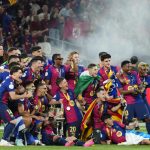
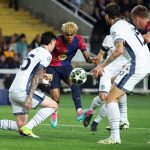
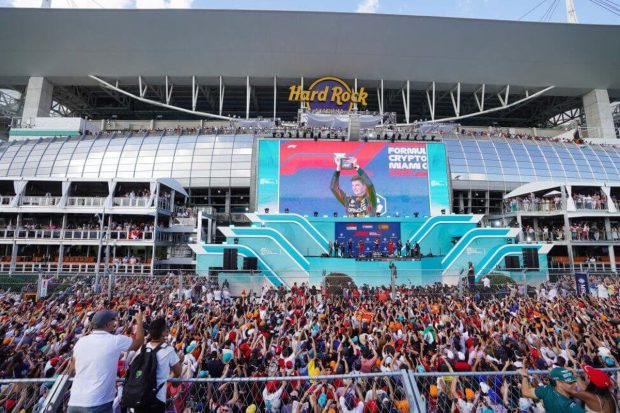


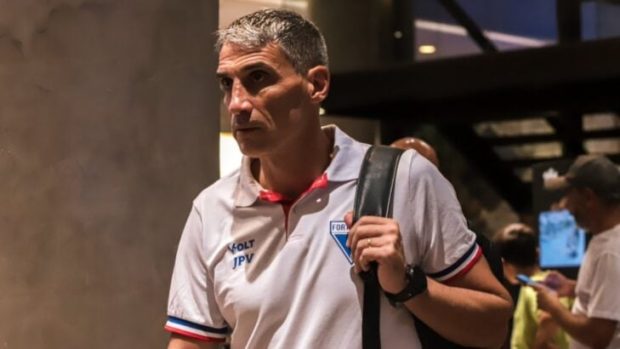
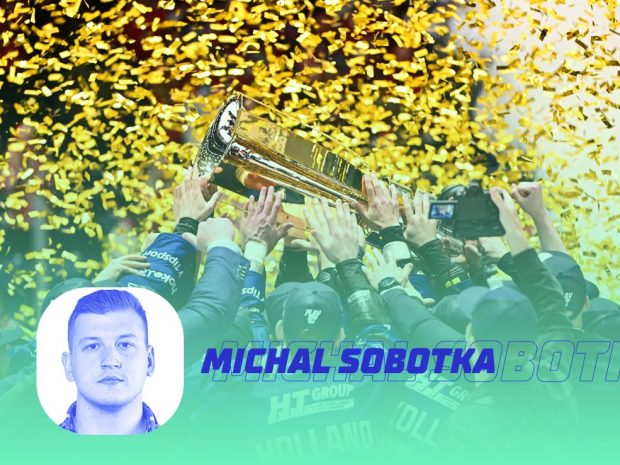
Be the first to leave a comment